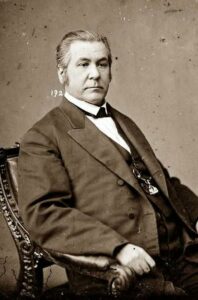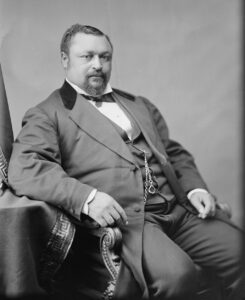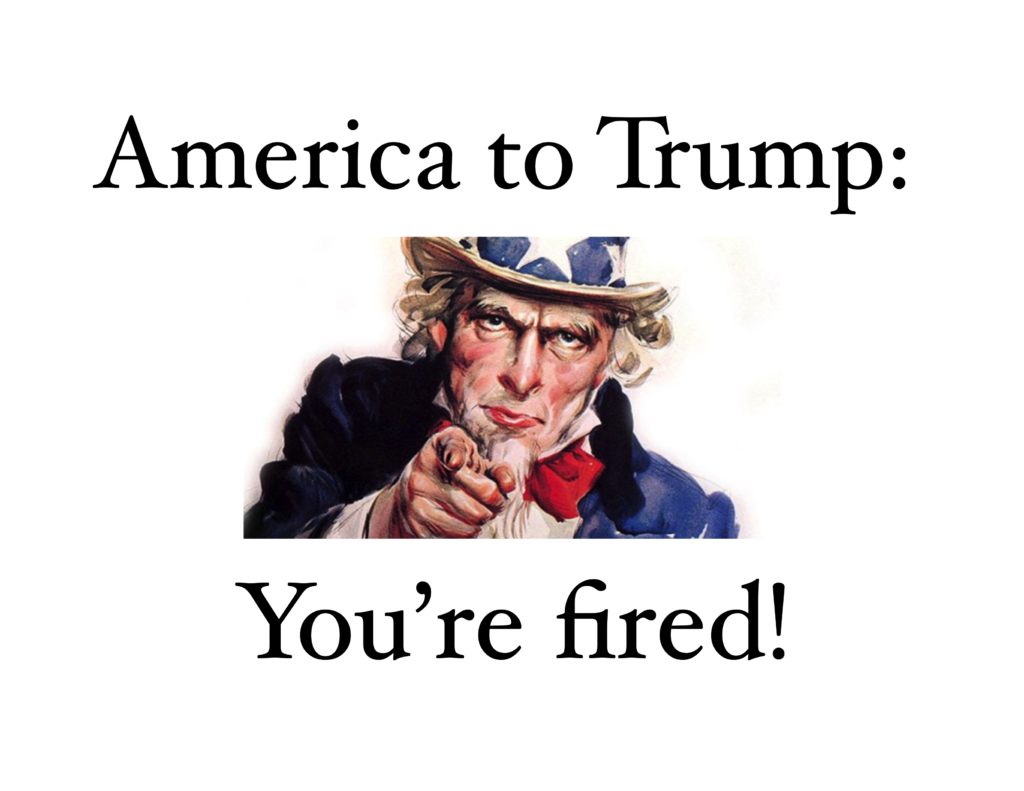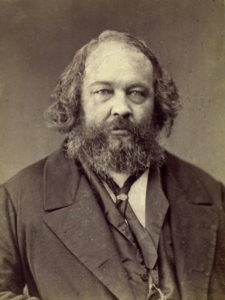Each of us is more than the worst thing we’ve ever done.
—Bryan Stevenson
American history is longer, larger, more various, more beautiful and more terrible than anything anyone has ever said about it.
—James Baldwin
Prologue: What Are You Angry About?
One fall when I was living in China, years ago, I had an upper respiratory infection that never quite cleared up. My asthma inhalers stopped working, even after I tried doubling my usual dose. The Singaporean doctor at the Western medical clinic finally threw his hands up. “I don’t have anything else I can do for you.” So with little to lose I went to the Traditional Chinese Medicine hospital, and after less than a week of drinking the herbal medicine prescribed by Dr. Zhou, I stopped using my inhalers altogether.
Needless to say, I became a regular patient. One day, as he felt my pulse, Dr. Zhou turned to me and said, “You’re angry.”
“Am I?”
“Yes,” he said. “What are you angry about?”
I thought for a moment. “Injustice.”
Dr. Zhou laughed. “There’s a lot of that,” he said.
* * *
My political education began when Jack Kennedy was assassinated. I was eleven years old. Up until that point my understanding of American history came from the textbooks we read in the public schools. The Pilgrims sitting down for a convivial Thanksgiving feast with local Indians. The brave settlers clearing forests and creating rich farmland out of the wilderness. Brilliant self-taught inventors producing the machines that powered the Industrial Revolution and the growing wealth of the nation. Wise and noble leaders like Washington, Adams, Jefferson, and Madison. Of course there were villains and evil deeds in the story, but they were invariably defeated by the forces of justice. Slavery, that terrible mistake, was overturned in the Civil War. Corrupt politicians and businessmen were inevitably found out and punished. Abraham Lincoln followed in the footsteps of the Founding Fathers, and was followed in turn by FDR, who not only saved the nation from the Great Depression but led the fight in World War II that defeated Hitler and turned the United States into the world’s superpower. Think of it: the first modern democracy leading the world toward a future of progress, education, justice, and prosperity for all.
Then Kennedy was killed. The accused shooter was murdered while in police custody, and the official explanations made no sense. The government was almost certainly lying to us. Soon after, the Vietnam War expanded, and the lies accumulated. The U.S., it turned out, had been involved in assassinating the president of South Vietnam. Other assassinations or attempted assassinations of foreign leaders came to light, along with the complicity between the CIA and the U.S. Chamber of Commerce in manipulating small nations all over Latin America, Asia, and Africa for the profit of American corporations. At the same time the Civil Rights movement revealed to clueless whites like me the sordid facts about racial segregation in the South and the long history of discrimination, injustice, lynchings, and mob violence suffered by African-Americans since the end of Reconstruction in 1876 and, especially in the 20th century, in urban centers from New York to Los Angeles. As racial tensions increased and the antiwar movement grew, I was in high school and college, discovering the dark side of American history and culture. Discovering that I had been lied to, repeatedly. I felt betrayed. I was angry about the crimes committed by slaveowners, by exploitative capitalists, by the racist white majority, by the politicians and police departments and banks that perpetrated injustice at home and abroad. Langston Hughes’s searing description of the feelings of African-Americans toward the Southern homeland that so many of them had left in search of a better life resonated with my own bitter feelings of betrayal:
The lazy, laughing South
With blood on its mouth.
The sunny-faced South,
Beast-strong,
Idiot-brained.
The child-minded South
Scratching in the dead fire’s ashes
For a Negro’s bones.
Cotton and the moon,
Warmth, earth, warmth,
The sky, the sun, the stars,
The magnolia-scented South.
Beautiful, like a woman,
Seductive as a dark-eyed whore,
Passionate, cruel,
Honey-lipped, syphilitic–
That is the South.
And I, who am black, would love her
But she spits in my face.
And I, who am black,
Would give her many rare gifts
But she turns her back upon me.
So now I seek the North–
The cold-faced North,
For she, they say,
Is a kinder mistress,
And in her house my children
May escape the spell of the South.
—“The South,” by Langston Hughes
I had not suffered personally. I had not been an indigenous American, an African-American, an immigrant, a sharecropper. I had not been unemployed, or lived in a tenement house, or been drafted into the military and sent overseas to kill brown-skinned people for the Chamber of Commerce. But I deeply empathized with those who had, and I deeply resented their persecutors.
“You’re angry,” Dr. Zhou said.
“Am I?”
“Yes,” he said. “What are you angry about?”
I thought for a moment. “Injustice.”
Dr. Zhou laughed. “There’s a lot of that,” he said.
More than half a century has passed since they murdered Jack Kennedy and got away with it. I am still angry. Sometimes I wonder, “Why in the world am I still angry, half a century later?” Most of the time, though, I wonder why everyone isn’t as angry as I am. Because, of course, the murder of Jack Kennedy was just one spectacular moment in a long, long series of crimes. Do nations have souls? Are they haunted by their sins, especially the ones they try to cover up and deny? It’s dishonesty, above all, that corrupts the soul. Redemption is possible, but not without repentance and confession. Since those first English freebooters arrived in Virginia hoping to find gold, America has been pretending that it has nothing to be ashamed of.
The Elephant in the Room
the elephant in the room: an obvious major problem or issue that people avoid discussing or acknowledging
—Merriam-Webster.com
Donald Trump was elected by a wave of racist reaction against eight years of America’s first African-American president; by racist fears of immigrants; by racist resentment of the decline of the white working class, especially in rural America and the Midwestern rust belt, where globalization left previously prosperous communities devastated; by racist resentment of urban centers that are invariably more multi-cultural and more inclined to vote Democratic; and by racist resentment of poor people of color, who are simultaneously blamed for taking jobs from whites and for running up the costs of social welfare programs because they are unemployed—not to mention their supposed propensities for crime and drug-taking.
Trump’s election was assisted by Russia’s stealth disinformation campaign, exploiting social media and turning the internet into history’s greatest propaganda tool. But it was made possible only by the anti-democratic Electoral College, an invention of the 1787 Constitutional Convention. My high school history books described the Electoral College as part of a compromise between “small states” and “large states” that was designed to ensure a balance of power between rural and urban communities. But it was also a compromise between the slave-holding southern states and the non-slave northern states, pushed by southerners’ fears that they would soon be outvoted by the more populous North. (The infamous Second Amendment, the sacred text underlying the nation’s unrelenting gun violence, was similarly pushed by slaveowners like Patrick Henry, who were terrified that the federal government would not come to their aid if the slaves rebelled.)
Since being elected, Trump and the Republicans have controlled the government thanks to the U.S. Senate, another anti-democratic creation of the Constitutional Convention that has kept power in the hands of—or at least within reach of—the (formerly) slaveholding states. Trump continues to play the race card whenever it suits his purposes, against immigrants from Latin America, against dark-skinned people from “shithole countries,” against brown-skinned Muslims invariably smeared as religious fanatics and terrorists, and most recently against the Chinese, convenient whipping-boys for Trump’s colossal mismanagement of the COVID-19 crisis.
White resentment of the brown-skinned urban poor has been reinforced throughout America’s history by its success mythology, which holds that in America, anyone who is honest and hardworking can succeed. The obvious corollary of this deeply-engrained national myth is that poor people are poor because they are lazy and worthless. Racists have always viewed higher poverty rates among people of color as confirmation of the “white race’s” superiority. Racism has also conveniently divided poor whites from poor blacks, preventing them from uniting against the moneyed interests who have always taken a disproportionate share of the nation’s wealth and income. Trump has masterfully exploited these racist fears, resentments, and prejudices with the help of Fox News and right-wing talk-radio provocateurs whose toxic propaganda pervades rural America. As a result, Trump can lie repeatedly without losing support among his base, that 40-45% of mostly white, mostly rural, mostly working class voters who believe fervently that he is standing up for them against brown-skinned people, foreign and domestic, who are trying to take America away from the brave, honest, hardworking white people who made it “the greatest nation on earth.”
And so now, Donald Trump—the most corrupt and incompetent President in history—is in charge while the nation faces its greatest public health crisis in at least a century. The ringing, idealistic phrases of the Declaration of Independence and the speeches of Abraham Lincoln seem little more than a thin coat of paint on a house that has been rotting from within for centuries. Slavery and the century-and-a-half of racism that has followed its abolition are not an aberration or anomaly. They are not an unfortunate and somewhat embarrassing side-note to an otherwise proud story of liberty and democracy in the New World. Rather, slavery and the decades of racism that have followed its abolition are at the core of America’s story. The same Thomas Jefferson who wrote, “We hold these truths to be self-evident, that all men are created equal” was a slaveowner who, after his wife died, slept with one of his slaves, Sally Hemings, and fathered several children by her—children he never acknowledged as his. Racism remains at the core of America’s politics. It explains why, at a moment of crisis, the nation is being led by an ignorant con-man.
In 1675 the Wampanoags rose up against the Puritan colonizers who had first arrived in “New England” a generation earlier. The settlers called the three-year conflict that followed “King Philip’s War” because they could not pronounce the name of the Wampanoag chief, Metacom, and called him King Philip instead. Rather than recognize that indigenous Americans were justly outraged at being colonized by foreigners from across the sea, the settlers concluded that God was using the Indians to punish them for their private sins. Before organizing themselves to exterminate the Indians, the settlers went to church to pray, fast, and beg God to forgive them. They interpreted their eventual victory as a sign that their prayers had been heard. In my darkest moments, that story represents American history in miniature: ignorant, self-righteous white people committing crime after crime while believing all the while that God is on their side.
It is hard to imagine how anything less than a second American Revolution could put an end to the Electoral College, the anti-democratic Senate, the racist gerrymandering of congressional districts, the de facto segregation baked into American communities, and all the other consequences of racism that are dragging the nation toward a dismal demise. It is even harder to imagine a second American Revolution.
* * *
Of course the full story is more complicated and more nuanced. The concerns of small states were real in 1787, and those small states included non-slave states like Rhode Island. The United States has never been a nation in the French sense of the word; it is rather a federation of states, and each of those states, north and south, has always had a strong sense of independence from, and presumptive opposition to, anything coming from the central government in Washington. As for the nation’s gun-mania, the western frontier was a dominant feature of American life from the earliest settlements of the 1600s right up until almost the end of the 1800s, and remained central to the American imagination far beyond that time. The country’s continued obsession with individual gun rights certainly has a lot to do with that history. And so on. The story can be told that way.
So much depends on how the story is told.
For most of my life, the story has been told in a way that has minimized and marginalized slavery and, to an even greater extent, racism. Incidents of white violence against blacks were often simply omitted from the narrative. The story of the economic impact of slavery and the 19th-century cotton trade was minimized. The nationwide institutionalized racism of police departments and banking policies like red-lining were not included. Incidents of racial discrimination or violence were always presented as deplorable but exceptional cases. Even the story of the Civil War itself was told in such a way that black people were almost totally absent. The truth is, white supremacists of the northern states—including Abraham Lincoln—did not fight to free the slaves, but to preserve the Union. (Yes, Lincoln was a white supremacist. As kind and considerate as he was, personally, he believed the only permanent solution to America’s race problem was to send the slaves and their descendants back to Africa.) Meanwhile the white supremacists of the South lost the war, but after a decade of Reconstruction they regained their footing and won the peace. And their version of events has dominated the national narrative ever since, despite the hagiography of Abe Lincoln. Northern whites turned a blind eye to Jim Crow segregation and lynchings in the South for most of a century after the Civil War because what they cared about was preserving the Union, and one way to do that was to construct a narrative of national unity that minimized racial divisions.
If, however, one looks at American history with slavery and racism in the foreground instead of putting them in the background and off to the side, the continuities become obvious and the short version of the story becomes something like what I have written above. Has there been progress when it comes to “race relations” in the United States? Of course. But the racist sentiments among white Americans, and the racist institutions of American politics like the Electoral College, the Senate, and gerrymandered Congressional districts continue. Put together, they have led to the election of Donald Trump and the dominance of a Republican Party stripped of any principle beyond holding onto power by whatever despicable means are available. Can the minority of Americans who embrace a progressive vision of social and economic justice in a multicultural nation prevail against the stubborn legacy of racism in America’s culture and political institutions? I very much doubt it.
* * *
Despite this sordid history of slavery and racism, of lynchings and riots and mob violence, of chronic discrimination against minorities by police, by employers, by landlords, by nobodies for no particular reason—despite this, most Americans of all races and incomes and social classes remain optimistic and patriotic to a degree that is almost childlike. A friend once asked me, “Considering all the people you have met from different cultures and nations all over the world, who do African-Americans most resemble?” I thought for a few moments, then gave up. My friend smiled. “White Americans!” And I realized immediately how right he was. Presidential candidates as different as Ronald Reagan and Barack Obama find ways to appeal to the deep vein of optimism that runs through the entire nation. It’s “Morning in America!” “Hope and change!” “Yes, we can!” Optimism and sentimentality make the sale in America, every time. Critics are a downer. They’re so negative. They turn people off. Most Americans don’t want to hear about all the defects and problems and injustices. So when someone even says the word racism, the negative response follows immediately. Talking to many white Americans about racism is like talking to men in a gentleman’s club about feminism. No one wants to hear it. “If you don’t like this country, go find a better one, if you can. But you can’t, and you know it, so just shut up.” That’s basically the response.
It is dishonesty, above all, that corrupts the soul.
If the optimism were honest and clear-sighted, I could accept it, even embrace it. But because it is blind and dishonest, it provokes me. If someone mentions the Pilgrims and their “city on a hill,” I remind them of the genocide of indigenous Americans that rendered the hill largely depopulated and open for English colonizers. If they mention the can-do American spirit that created the richest nation on earth, I begin dourly to point out that millions of African slaves created most of the nation’s wealth. I make myself disagreeable. I want to push their noses in it, to wake them up.
They don’t want to wake up because they are in love with the idea of America, the Platonic ideal of America, the dream of America. The American dream. Winners and losers, rich and poor, white black brown yellow green and purple, they all dream America. Americans are dreamers.
* * *
And there is something so powerful about that dream. Martin Luther King, Jr., could see clearly, but still preached about the dream. Ray Charles sang “America the Beautiful.” And the taxi driver I once met, who was interested in history, exemplified American optimism. I spoke about the sins of Thomas Jefferson, but he was unpersuaded. “Maybe none of that is really important,” the taxi driver said. “Maybe all that matters is those beautiful words, that beautiful idea.”
Maybe.
I agree with Bryan Stevenson of the Equal Justice Initiative when he says that “Each of us is more than the worst thing we’ve ever done.” Thomas Jefferson was much more than a slave-owning hypocrite. But he was, also, a slave-owning hypocrite, and the nation he helped to found has never resolved the contradictions that he embodied. America has never resolved the contradiction of being a nation whose pre-eminent value is freedom, and whose wealth was founded on slavery. History, as they say, is long, while life is short, and perhaps it is only my deficient perspective, limited by a mere human lifetime, that makes me pessimistic about America.
As one of America’s great authors once wrote, “Isn’t it pretty to think so?”





